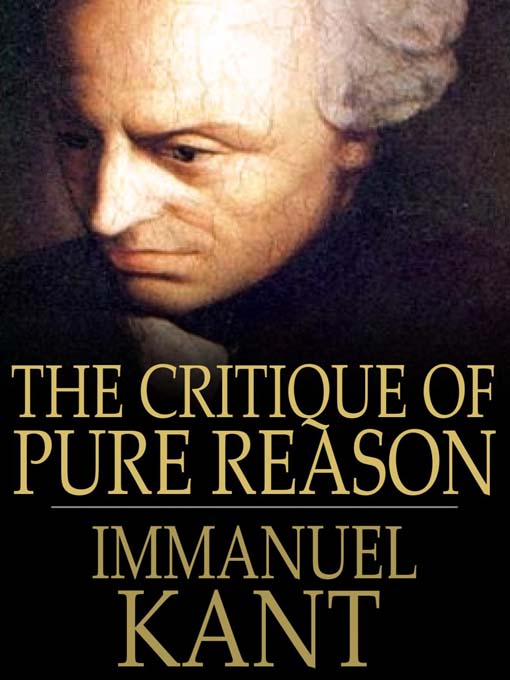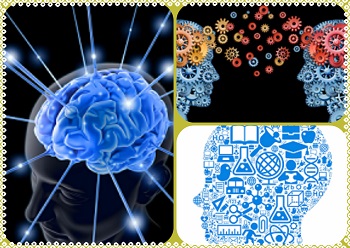Even when I was in grad school in philosophy, I stayed away from Kant. Most philosophers think of him as the Everest of Western philosophy; my instincts told me that his system is the Marianas Trench—all pressure with the illusion of depth.
 Kant’s critique of his “Critique of Pure Reason” is enough to indict him as thought’s supreme egoist: “In this book I have chiefly aimed at completeness; and I venture to maintain that there ought not to be one single metaphysical problem that has not been solved here, or to the solution of which the key at least has not been supplied.”
Kant’s critique of his “Critique of Pure Reason” is enough to indict him as thought’s supreme egoist: “In this book I have chiefly aimed at completeness; and I venture to maintain that there ought not to be one single metaphysical problem that has not been solved here, or to the solution of which the key at least has not been supplied.”
For the unitiated (and everyone remains uninitiated to Kant’s convoluted philosophy), the following statement sums up his basic program. “How far we can advance independently of all experience, in a priori knowledge is shown by the brilliant example of mathematics.”
“A priori” means before observation and evidence. There is no such thing where thought is concerned. The idea that 2+2=4 is true before experience, and doesn’t depend on experience past, present or future is absurd. It is precisely and inextricably human experience that discovers and demonstrates mathematical and scientific truths. Perception of non-scientific truth has a completely different character.
There is a great deal of confusion about the nature and limits of knowledge, and Kant, perhaps more than any other modern philosopher, cemented it. So much so that the proposition that the brain can come into direct contact with an infinite dimension beyond knowledge and the known is not even considered. Yet that is the most important thing a human being can do.
America’s infamous Secretary of Defense, Donald Rumsfeld, once hilariously said in referring to the tragic mess the Bush-Cheney Administration made in Iraq: “There are known knowns. These are things we know that we know. There are known unknowns. That is to say, there are things that we know we don’t know. But there are also unknown unknowns. There are things we don’t know we don’t know.”
As absurd as the context was, that isn’t a bad summation of the dominant Western philosophy of knowledge from the ancient Greeks on down. Now however, the map and meaning of knowledge has to be redrawn and redefined—not to gain more knowledge, but to understand the limits of all forms of knowledge.
Nearly all philosophies of knowledge implicitly retain the growth of knowledge as the highest good and greatest goal of humanity. But this simply isn’t the case. Knowledge, no matter how far it extends, can never free us from hatred, ignorance and darkness.
The idea that “the larger the island of knowledge grows, the longer the shoreline — where knowledge meets ignorance — extends,” sounds very nice, but completely misses the mark. Freedom lies beyond the halls of knowledge and the horrors of the known.
So let’s consider knowledge, the known, and the unknown. Knowledge of the scientific kind is an ever-growing domain of discovery, evidence and codified insight. It isn’t static, but a growing, orderly and coherent body of insights, data and information, which are both continually checked and transmissable. Scientific knowledge is reliable, testable and obviously extremely useful for many forms of human endeavor—except understanding and liberating ourselves.
The known is the content our experience, and the experience of everyone living and dead. It includes all the non-rational information we are besieged with in the digital age, as well increasingly useless traditions, philosophies, beliefs and opinions of the past. All of that accreting material is the  dimension of the known, and it determines and defines the parameters of most people’s lives, whether they are aware of it or not.
dimension of the known, and it determines and defines the parameters of most people’s lives, whether they are aware of it or not.
It’s generally agreed that scientific knowledge is limited in the sense that it can never be complete—there will always be more things to discover, amass evidence and codify. Scientific knowledge is about arranging laws and rules into a systematic code, comprehensible and testable by anyone, irrespective of culture and language. That’s its power, and its place.
However scientific knowledge is not just extensionally limited, given the fact that it’s continuously growing and can never be complete; it’s also intrinsically limited, because it is irrelevant to psychological freedom and inward growth.
Perception, in the sense I use the word, is always direct, immediate and fresh. What I’ve seen and understood yesterday is, when I turn it into knowledge, a tremendous impediment to insight and understanding today. That’s the great difference between living in terms of scientific knowledge (much less the non-rational known), and living in terms of insight, direct perception and understanding.
The unknown, in the Western philosophy of knowledge, is the area, however great or small, which has yet to be discovered and covered by knowledge. That basic view is mistaken however. The unknown has no relationship to knowledge or the known whatsoever.
Humans function in terms of knowledge and the known. Human beings regularly leave the realm of both to stand, in stillness and silence, in the infinitely mysterious realm of the unknown.
Insight, creation, love and death have their source and being in the unknown. One therefore has to set aside scientific knowledge and rational thought, and leave altogether the psychological known, to direct experience the unknown.
In short, the psychological known is our prison. Scientific knowledge has an important place, just not first place. Only the unknown is complete, and we are only complete when we enter the timeless field of the unknown.
Martin LeFevre

